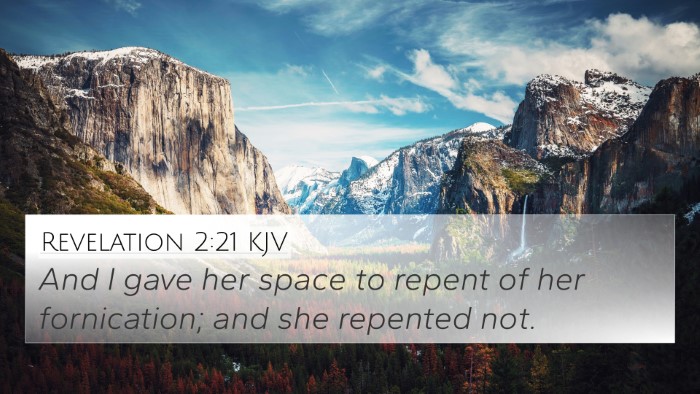This section features a detailed cross-reference designed to enrich your understanding of the Scriptures.
Below, you will find carefully selected verses that echo the themes and teachings related to Luke 13:3 KJV. Click on any image to explore detailed analyses of related Bible verses and uncover deeper theological insights.
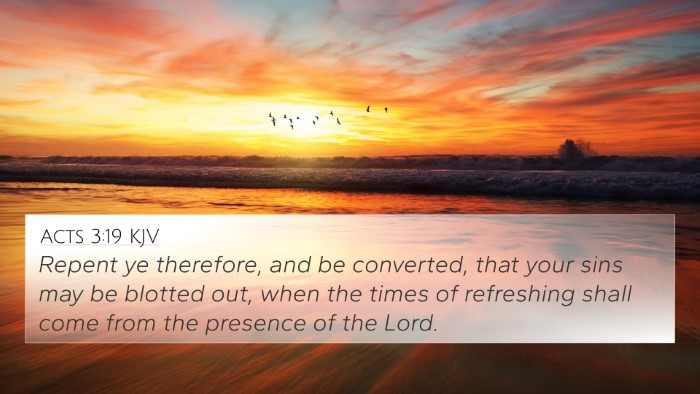 Acts 3:19 (KJV) »
Acts 3:19 (KJV) »
Repent ye therefore, and be converted, that your sins may be blotted out, when the times of refreshing shall come from the presence of the Lord.
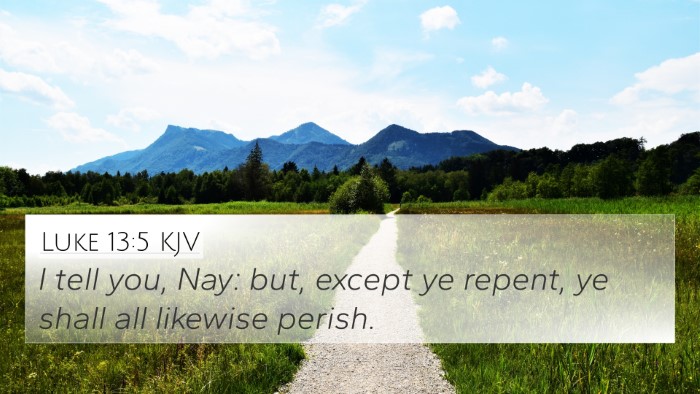 Luke 13:5 (KJV) »
Luke 13:5 (KJV) »
I tell you, Nay: but, except ye repent, ye shall all likewise perish.
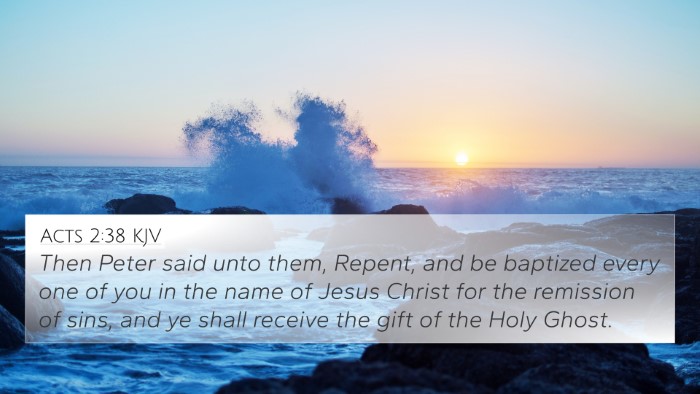 Acts 2:38 (KJV) »
Acts 2:38 (KJV) »
Then Peter said unto them, Repent, and be baptized every one of you in the name of Jesus Christ for the remission of sins, and ye shall receive the gift of the Holy Ghost.
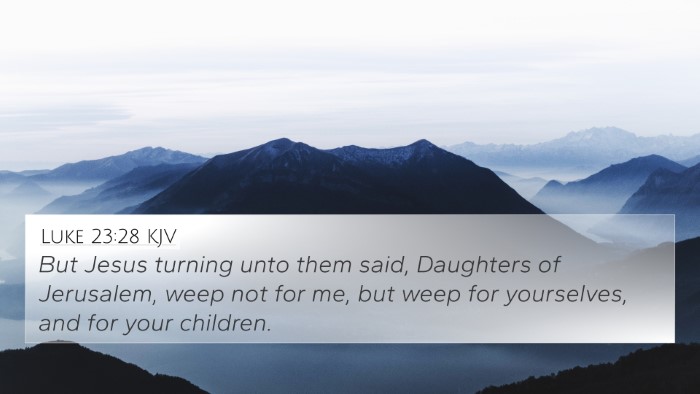 Luke 23:28 (KJV) »
Luke 23:28 (KJV) »
But Jesus turning unto them said, Daughters of Jerusalem, weep not for me, but weep for yourselves, and for your children.
 Matthew 12:45 (KJV) »
Matthew 12:45 (KJV) »
Then goeth he, and taketh with himself seven other spirits more wicked than himself, and they enter in and dwell there: and the last state of that man is worse than the first. Even so shall it be also unto this wicked generation.
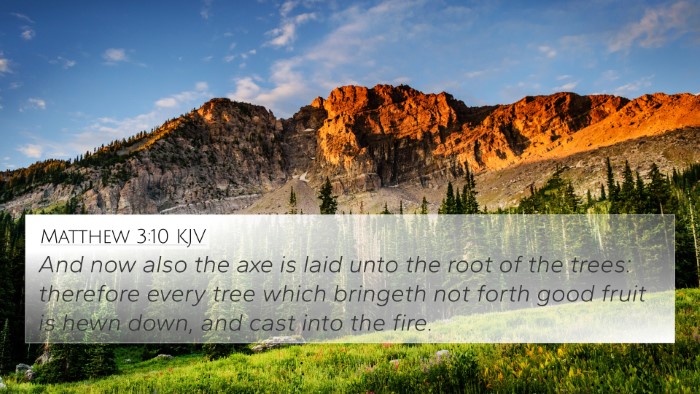 Matthew 3:10 (KJV) »
Matthew 3:10 (KJV) »
And now also the axe is laid unto the root of the trees: therefore every tree which bringeth not forth good fruit is hewn down, and cast into the fire.
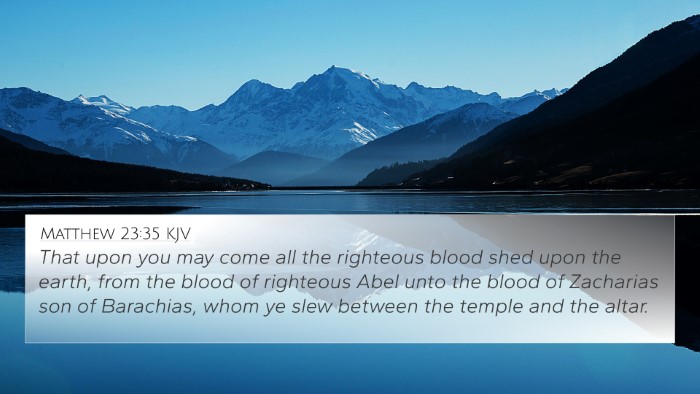 Matthew 23:35 (KJV) »
Matthew 23:35 (KJV) »
That upon you may come all the righteous blood shed upon the earth, from the blood of righteous Abel unto the blood of Zacharias son of Barachias, whom ye slew between the temple and the altar.
 Luke 21:22 (KJV) »
Luke 21:22 (KJV) »
For these be the days of vengeance, that all things which are written may be fulfilled.
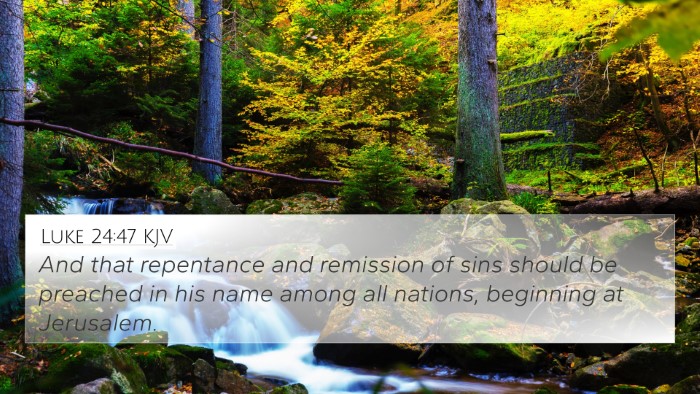 Luke 24:47 (KJV) »
Luke 24:47 (KJV) »
And that repentance and remission of sins should be preached in his name among all nations, beginning at Jerusalem.
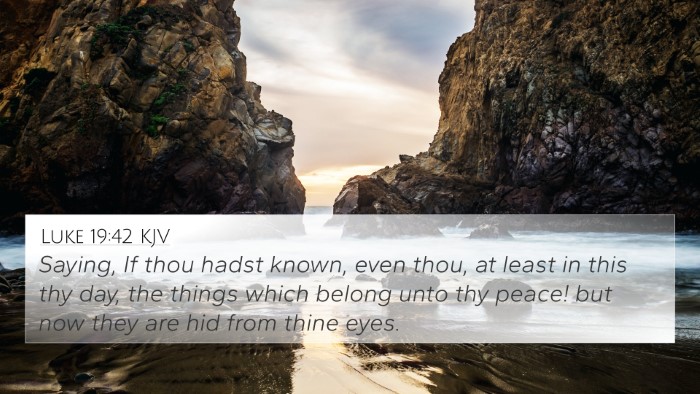 Luke 19:42 (KJV) »
Luke 19:42 (KJV) »
Saying, If thou hadst known, even thou, at least in this thy day, the things which belong unto thy peace! but now they are hid from thine eyes.
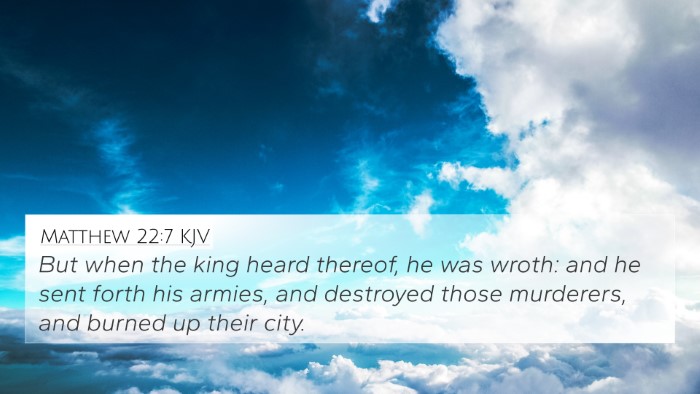 Matthew 22:7 (KJV) »
Matthew 22:7 (KJV) »
But when the king heard thereof, he was wroth: and he sent forth his armies, and destroyed those murderers, and burned up their city.
 Matthew 24:21 (KJV) »
Matthew 24:21 (KJV) »
For then shall be great tribulation, such as was not since the beginning of the world to this time, no, nor ever shall be.








